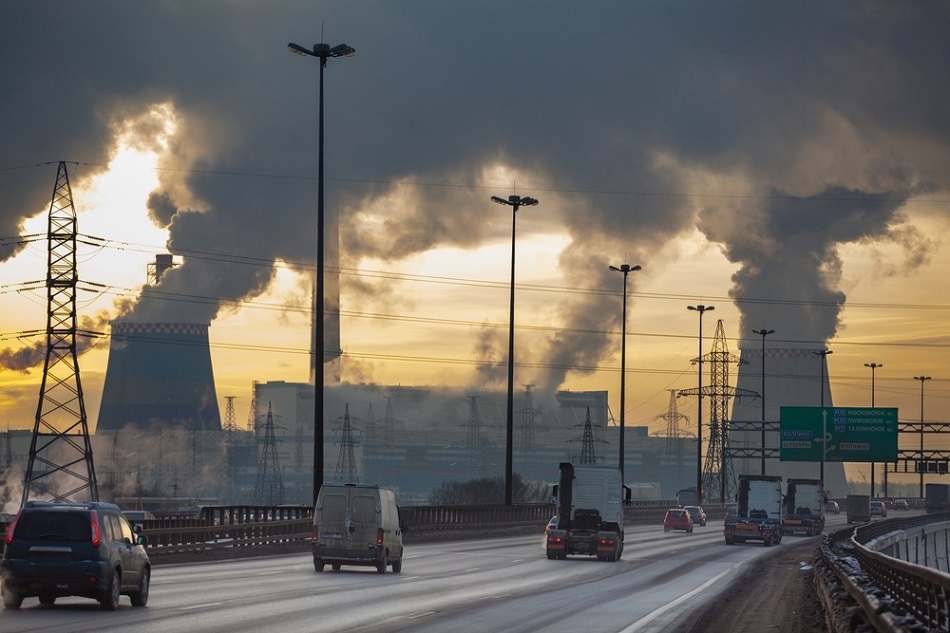Russia’s Ministry of Natural Resources and Environment recently announced that the largest country in the world is warming at a rate two and a half times faster than the rest of the world (Antonova, 2015). This is due in part to Soviet-era policies which largely ignored environmental concerns to focus on immediate economic benefit during the 20th century, as well as a continuing problem with high levels of pollution in the country.

Image Credit: Kekyalyaynen / Shutterstock.com
It is not only emissions pollution that Russia has to tackle, but plastic pollution as well. Plastic pollution is contributing to a major problem with water pollution in Russia, with up to 36.3 pieces of microplastic found per kilogram of dry sediment in Baltic Sea beaches in the Kaliningrad region according to a recent report (Esiukova, 2017).
However, some local and citizen-led efforts are underway in Russia to tackle this pollution problem. Considering the size of Russia’s economy, population and landmass, these efforts must be encouraged and scaled wherever possible for the environmental wellbeing of the entire global ecosystem.
Plastic clean-ups
2017 was declared the Russian Year of Ecology by the government, supported bilaterally by the United Nations. As part of actions taken during the year to tackle Russia’s pollution (and other environmental) problems, three large-scale aquatic environment plastic clean-up operations took place with volunteers. The events at Monchegorsk Lake, Nikel City river and the Murmansk Sea (in the Arctic) collected over two tons of plastic.
Volunteer actions such as these are an important display of citizens’ concern with plastic pollution in water. However, according to UN Environment’s European Regional Coordinator Mahir Aliyev, international and supranational coordination is needed to reduce the amount of plastic that ends up in Russia’s waters, as currents bring plastic pollution from around the world to the Arctic. Aliyev said at the Murmansk Sea event: "I have seen plastic bottles that could have been thrown away from as far away as Europe. We can all take action – no matter how local – to take care of our planet and make a difference."
Civic policy for air pollution
At a local level, numerous cities in the country have enacted policies to limit vehicle and other emissions contributing to air pollution, or have projects in place to help reduce emissions in the near future.
In the Russian capital, Moscow, vehicles below the Euro-3 emissions standard have been prohibited from entering the city centre for several years. Meanwhile, the city has installed almost 80 electric vehicle charging stations, with a similar number planned for installation in the coming years.
St. Petersburg is focusing investment on an electrified public transport system which will include trams and buses, while limiting the number of heavy duty freight trucks allowed in the city. There is also a cycle hire scheme and almost 40km of cycle paths in the city, with plans to double the cycle path network in the near future.
Changing attitudes
The 2017 Russian Year of Ecology, announced by Russian President Vladimir Putin, was a step towards changing public and policy attitudes towards pollution and other environmental problems in Russia. This is a welcome sign, as the country – whose economy relies heavily on fossil fuel extraction and export – has, in the past, maligned international efforts to mitigate pollution of the environment. As another sign of these potentially changing public and policy attitudes, Russian explorer Fyodor Konyukhov became the UN Environment’s Goodwill Ambassador for Russia as part of the Year of Ecology.
However, national policy still heavily subsidizes oil and gas, meaning energy derived from those sources makes up over 99% of Russia’s consumption and as such contributes to carbon emission pollution in Russia’s (and the world’s) air. The Russian government has no clear pollution policy, and industry is not encouraged to reduce the amount of pollution it causes.
There is more hope in the local and citizen-led projects outlined above. Perhaps in this way, the Russian government, supranational bodies, international partners and heavy industries can be influenced to enact much-needed environmental policies and procedures to reduce and tackle the effects of plastic and emission pollution.
References and Further Reading
Antonova, M. (2015). Russia warming “2.5 times quicker” than global average: ministry. [online] Yahoo.com. Available at: https://sg.news.yahoo.com/russia-warming-2-5-times-quicker-global-average-112218344.html.
Esiukova, E. (2017). Plastic pollution on the Baltic beaches of Kaliningrad region, Russia. Marine Pollution Bulletin, 114(2), pp.1072–1080.
UN Environment in Europe. (2017). UN Environment - Year in Review 2017. [online] Available at: http://unepineurope.org/year-in-review-2017/.
Disclaimer: The views expressed here are those of the author expressed in their private capacity and do not necessarily represent the views of AZoM.com Limited T/A AZoNetwork the owner and operator of this website. This disclaimer forms part of the Terms and conditions of use of this website.